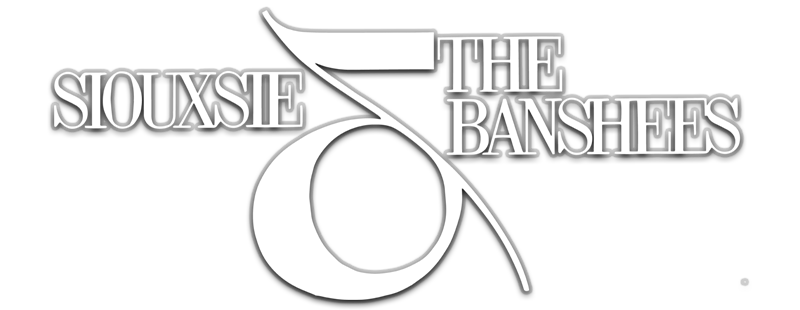Track List
01) Hong Kong Garden
02) Jigsaw Feeling
03) Overground
04) Carcass
05) Helter Skelter
06) Mirage
07) Metal Postcard (Mittageisen)
08) Nicotine Stain
09) Suburban Relapse
10) Switch
11) Pure
01) Hong Kong Garden
02) Jigsaw Feeling
03) Overground
04) Carcass
05) Helter Skelter
06) Mirage
07) Metal Postcard (Mittageisen)
08) Nicotine Stain
09) Suburban Relapse
10) Switch
11) Pure
2:55
4:37
3:47
3:49
3:45
2:47
4:12
2:56
4:10
6:46
1:50
Data Complete 80%
Total Rating
Total Rating
![]() (2 users)
(2 users)
Back Cover
CD Art
3D Case
3D Thumb
3D Flat
3D Face
3D Spine
First Released
![]() 1978
1978
![]() Alternative Rock
Alternative Rock
![]() Confrontational
Confrontational
![]() Rock/Pop
Rock/Pop
![]() ---
---
![]() Medium
Medium
![]() Album
Album
![]() 0 copies
0 copies
Album Description
Available in:
After building up an intense live reputation and a rabid fan base, Siouxsie and the Banshees almost had to debut with a stunner -- which they did, "Hong Kong Garden" taking care of things on the singles front and The Scream on the full-length. Matched with a downright creepy cover and a fair enough early producing effort from Steve Lillywhite -- well before he found gated drum sounds -- it's a fine balance of the early band's talents. Siouxsie Sioux herself shows the distinct, commanding voice and lyrical meditations on fractured lives and situations that would win her well-deserved attention over the years. Compared to the unfocused general subject matter of most of the band's peers, songs like "Jigsaw Feeling," "Suburban Relapse," and especially the barbed contempt of "Mirage" are perfect miniature portraits. John McKay's metallic (but not metal) guitar parts, riffs that never quite resolve into conventional melodies, and the throbbing Steven Severin/Kenny Morris rhythm section distill the Velvet Underground's early propulsion into a crisper punch with more than a hint of glam's tribal rumble. The sheer variety on the album alone is impressive -- "Overground" and its slow-rising build, carefully emphasizing space in between McKay's notes as much as the notes themselves, the death-march Teutonic stomp of "Metal Postcard," the sudden near-sunniness of the music (down to the handclaps!) toward the end of "Carcass." The cover of "Helter Skelter" makes for an unexpected nod to the past -- if it's not as completely overdriven as the original, Siouxsie puts her own definite stamp on it and its sudden conclusion is a great moment of drama. It's the concluding "Switch" that fully demonstrates just how solid the band was then, with McKay's saxophone adding just enough of a droning wild card to the multi-part theatricality of the piece, Siouxsie in particularly fine voice on top of it all.

User Album Review
None...
External Album Reviews
None...
User Comments


Available in:
After building up an intense live reputation and a rabid fan base, Siouxsie and the Banshees almost had to debut with a stunner -- which they did, "Hong Kong Garden" taking care of things on the singles front and The Scream on the full-length. Matched with a downright creepy cover and a fair enough early producing effort from Steve Lillywhite -- well before he found gated drum sounds -- it's a fine balance of the early band's talents. Siouxsie Sioux herself shows the distinct, commanding voice and lyrical meditations on fractured lives and situations that would win her well-deserved attention over the years. Compared to the unfocused general subject matter of most of the band's peers, songs like "Jigsaw Feeling," "Suburban Relapse," and especially the barbed contempt of "Mirage" are perfect miniature portraits. John McKay's metallic (but not metal) guitar parts, riffs that never quite resolve into conventional melodies, and the throbbing Steven Severin/Kenny Morris rhythm section distill the Velvet Underground's early propulsion into a crisper punch with more than a hint of glam's tribal rumble. The sheer variety on the album alone is impressive -- "Overground" and its slow-rising build, carefully emphasizing space in between McKay's notes as much as the notes themselves, the death-march Teutonic stomp of "Metal Postcard," the sudden near-sunniness of the music (down to the handclaps!) toward the end of "Carcass." The cover of "Helter Skelter" makes for an unexpected nod to the past -- if it's not as completely overdriven as the original, Siouxsie puts her own definite stamp on it and its sudden conclusion is a great moment of drama. It's the concluding "Switch" that fully demonstrates just how solid the band was then, with McKay's saxophone adding just enough of a droning wild card to the multi-part theatricality of the piece, Siouxsie in particularly fine voice on top of it all.
User Album Review
None...
External Album Reviews
None...
User Comments

No comments yet...


